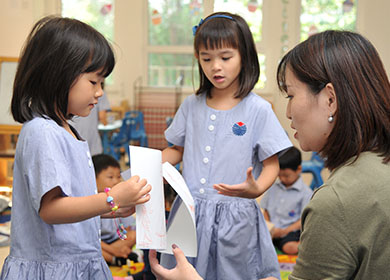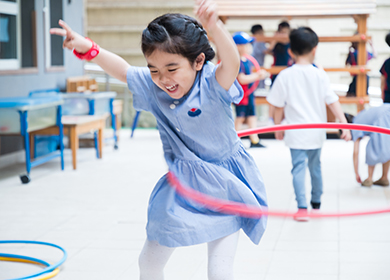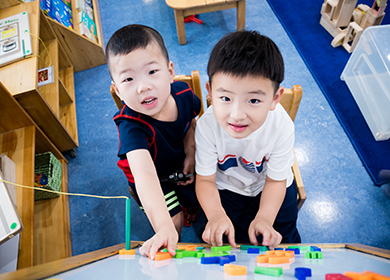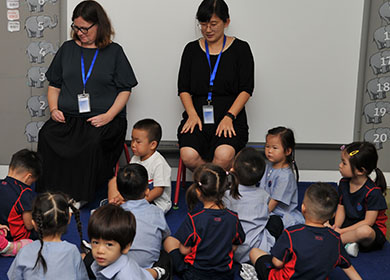Go Back
News
News
Supporting Your Child’s Transition in ECE
News
18 Oct, 2019
10 : 00
The beginning of the school year in August, saw many new faces walking into Yew Chung International School of Beijing’ premises to join our Early Childhood Education Center - the most important years of a long academic journey for our youngest learners that will proceed into our Primary and Secondary Schools.
Contrasting their older counterparts, many new ECE students walked into an unfamiliar environment, meeting new friends and spending the day with adults other than their caregivers and family members. Our ECE students’ first few weeks of schools entailed a multitude of first-time experiences that are generally very happy but can be distressing for them and their families.
Separation anxiety is one of the main causes of distress for learners during the transition period from being in the care of their loved ones to attending school. Separation is an emotion often identified as being protective, healthy and a child’s way of saying “You are my safe base and I need to develop trust and confidence in alternate carers.” For international students relocating from other countries, the experience may be even more daunting, due to changes in their familiar environments and language barriers they may experience.
For the reasons above, it is important that we create a welcoming and nurturing environment for learners’ smooth transition into kindergarten; this is a role eagerly taken on by our ECE teachers.
It has been eight weeks since our first day of school and we spoke to Maryanne Harper, ECE Co-ordinator about how the YCIS Beijing ECE team supports new students during the transition period to kindergarten. Below are the strategies she gave;
1. Clear, Consistent RoutinesChildren benefit from clear and consistent routines that are established in the first days and weeks of school. Children need a sense of with whom and where they belong. They need to know what happens next.
2. Play TimeBuilding relationships with each child is very important. Teachers talk, sing, play, dance and re-assure children throughout the day.
3. Our K2 Settling ProgrammeOur youngest children in K2 start their experience here with a gradual introduction. Our K2 Settling in Programme means that children attend for half days only until they feel safe and secure in these new settings.
4. First Language SupportWhere possible, we support children in their home language. This is often in either English or Chinese.
5. InterestsWe observe the interests of the children and respond to their emerging interests by providing provocations that inspire and re-assure them.
6. Individual SupportIndividual support is given to children as their needs emerge. For example, we will model verbal strategies to resolve problems with other learners and invite children to join play and small group activities. Individual support plans (for separation, for example) are worked out in partnership with individual families.
These guidelines contribute “to creating a sense of belonging to everyone” said Maryanne.
It is also crucial for parents to be provided with tools which will empower them to take part in the transition process for their little ones’ benefit.
Here are some tips parents can follow;
- Establish routine
- Have open communication with teachers
- Talk to your child positively about their new experience
- Get to know other families in your child’s class
The ultimate goal is to raise confident and independent individuals, and our ECE team works tirelessly to nurture those qualities.












